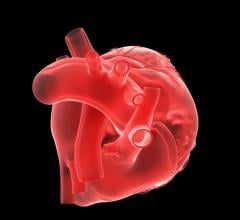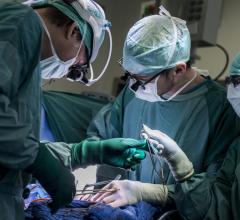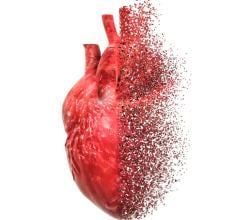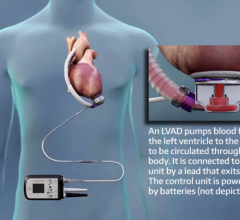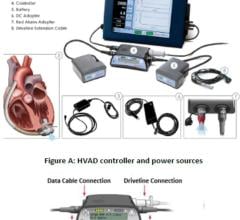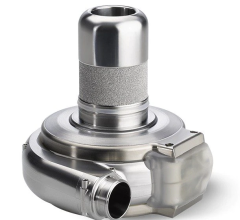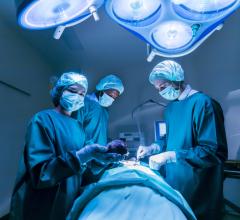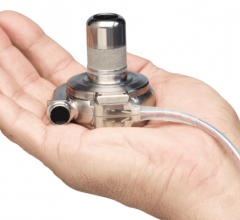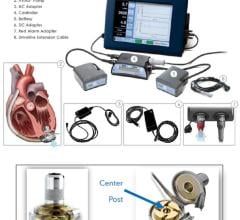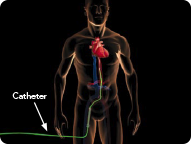
August 13, 2014 — Celladon Corp. announced that the first patient has been dosed in a clinical trial titled "Investigation of the Safety and Feasibility of AAV1/SERCA2a Gene Transfer in Patients with Heart Failure and a Left Ventricular Assist Device (LVAD)," which is designed to assess the potential utility of MYDICAR in advanced heart failure patients whose hearts are being supported by LVADs. This trial is partially funded by the British Heart Foundation and sponsored by Imperial College London.
"The initiation of this trial highlights the potential for MYDICAR to positively impact a wide range of cardiovascular conditions," said Krisztina Zsebo, Ph.D., chief executive officer of Celladon. "The LVAD patient population has exhausted existing pharmaceutical and device treatment options. We believe MYDICAR may serve as a valuable, and much needed, new treatment modality for these very advanced heart failure patients."
Dr. Alex Lyon, the trial's lead investigator from Imperial College London's National Heart and Lung Institute and honorary consultant cardiologist at Royal Brompton & Harefield NHS Foundation Trust, said, "This is the first time patients with heart failure and LVADS have received cardiac gene therapy. We will be evaluating safety in this new patient group and signals of benefit on heart function, given they are a patient group in need of new treatment options. Uniquely, we will be taking a heart muscle biopsy from each patient to measure the levels of treatment gene DNA delivered to their heart, and whether the presence of AAV neutralizing antibodies interferes with the efficiency of gene delivery. We hope our trial will provide important new information to guide the development of cardiac gene therapy as a new treatment paradigm for our patients with heart failure, including those with LVADs."
This proof-of-concept study is expected to evaluate 24 patients with varying levels of neutralizing antibodies to determine the safety and feasibility of using MYDICAR to treat advanced heart failure patients with LVADs, how well MYDICAR delivers the gene for SERCA2a to heart cells and the impact of circulating neutralizing antibodies to AAV1 on the ability of MYDICAR to deliver the SERCA2a gene to heart muscle cells. Of the patients enrolled in the study, 16 will be treated with MYDICAR and eight will be treated with placebo. Safety data and changes in heart function as assessed by tissue Doppler echocardiography, six-minute walk tests, cardiopulmonary exercise and metabolic stress tests will be collected and analyzed. In addition, as an exploratory sub-study, patients will be assessed to see whether their cardiac function improves enough to support being potentially weaned off their LVADs. Six months post-treatment, all patients will undergo a heart biopsy for collection of tissue to determine the presence of the SERCA2a gene.
Additionally, Celladon recently completed enrollment of a 250-patient Phase 2b CUPID2 clinical trial evaluating the efficacy of MYDICAR in reducing the frequency of, or delaying of, heart failure-related hospitalizations. This randomized, double blind, placebo-controlled, multinational trial is evaluating a single intracoronary infusion of high-dose MYDICAR versus placebo, added to a maximal, optimized heart failure regimen in patients with New York Heart Assn. (NYHA) class III or IV symptoms of chronic heart failure due to systolic dysfunction. The company has received Breakthrough Therapy designation from the U.S. Food and Drug Administration (FDA) for this program and expects to report results from this clinical trial in April 2015.
For more information: www.celladon.com

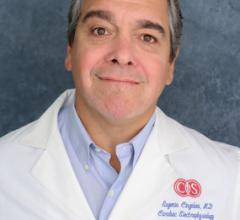
 June 19, 2024
June 19, 2024 
